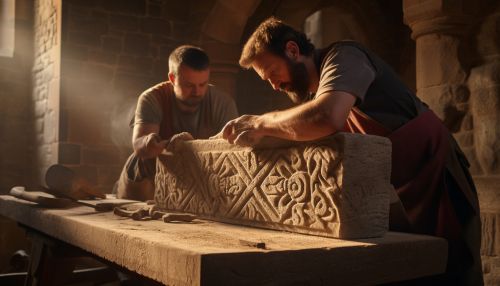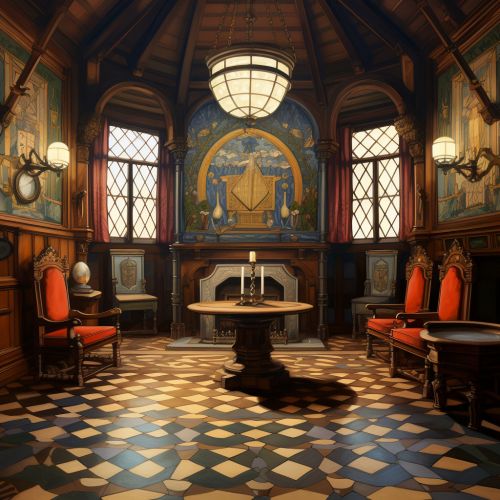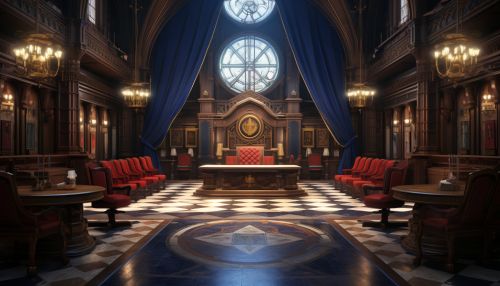Freemasonry
Origins and Early History
Freemasonry, also known as Masonry, is one of the world's oldest and largest fraternal organizations. Its origins are traced back to the stonemason guilds of the Middle Ages.


.
The first Grand Lodge, the Grand Lodge of England (GLE), was founded on June 24, 1717. This marked the beginning of organized Freemasonry, which spread to Europe and the American colonies in the 18th century. The United Grand Lodge of England (UGLE) was established in 1813, following the union of the GLE and the rival Ancients Grand Lodge.
Beliefs and Principles
Freemasonry is not a religion, but it requires its members to believe in a Supreme Being. It promotes moral and ethical lessons through symbolism derived from the tools and language of the medieval operative stonemason. Freemasons use metaphors from geometry and the architecture of stonemasonry to inform their continuing pursuit of knowledge, ethics, and leadership skills.
Structure and Degrees
Freemasonry is organized into lodges, which are the basic organizational unit of the fraternity. Each lodge is governed by a Worshipful Master, assisted by other officers.


The Masonic journey is divided into three symbolic degrees: Entered Apprentice, Fellowcraft, and Master Mason. Each degree represents a stage of personal development and is associated with specific symbols and lessons.
Rituals
Freemasonry is known for its unique rituals, which are performed during the initiation of new members and during other Masonic ceremonies. These rituals, full of symbolism, are meant to instill moral and ethical lessons.
Freemasonry Worldwide
Freemasonry exists in various forms all over the world, with a membership estimated at around six million. The fraternity is administratively organized into independent Grand Lodges, each of which governs its own jurisdiction.
Controversies and Criticisms
Freemasonry has been the subject of numerous controversies and criticisms. These range from political and religious objections, to conspiracy theories. Despite these challenges, Freemasonry continues to exist and thrive in many parts of the world.
Influence on Society
Freemasonry has had a significant influence on society, particularly in the areas of charity and public service. Many Masons have also played key roles in history, contributing to science, the arts, and politics.
See Also
History of Freemasonry Masonic Lodge Masonic Rituals Anti-Masonry Masonic conspiracy theories
